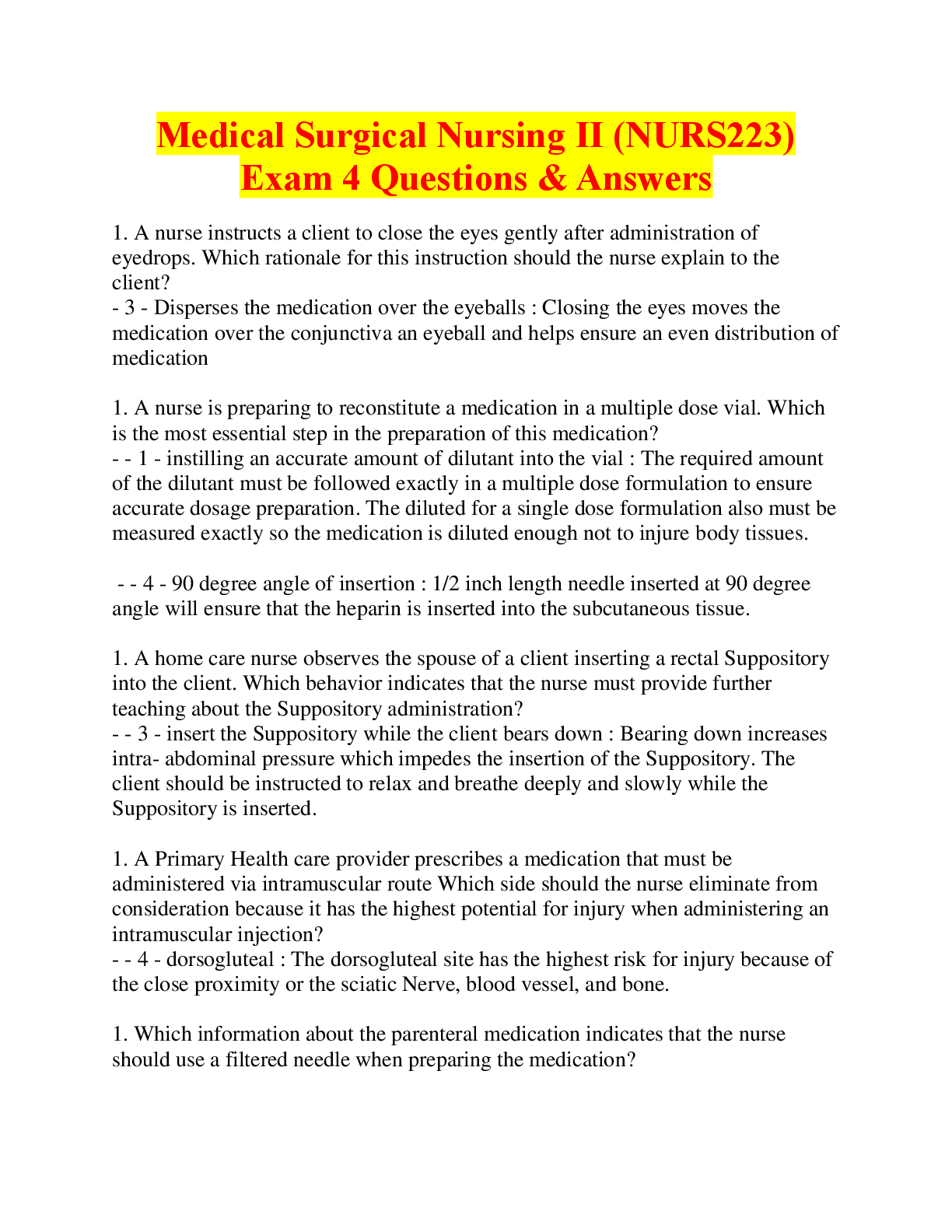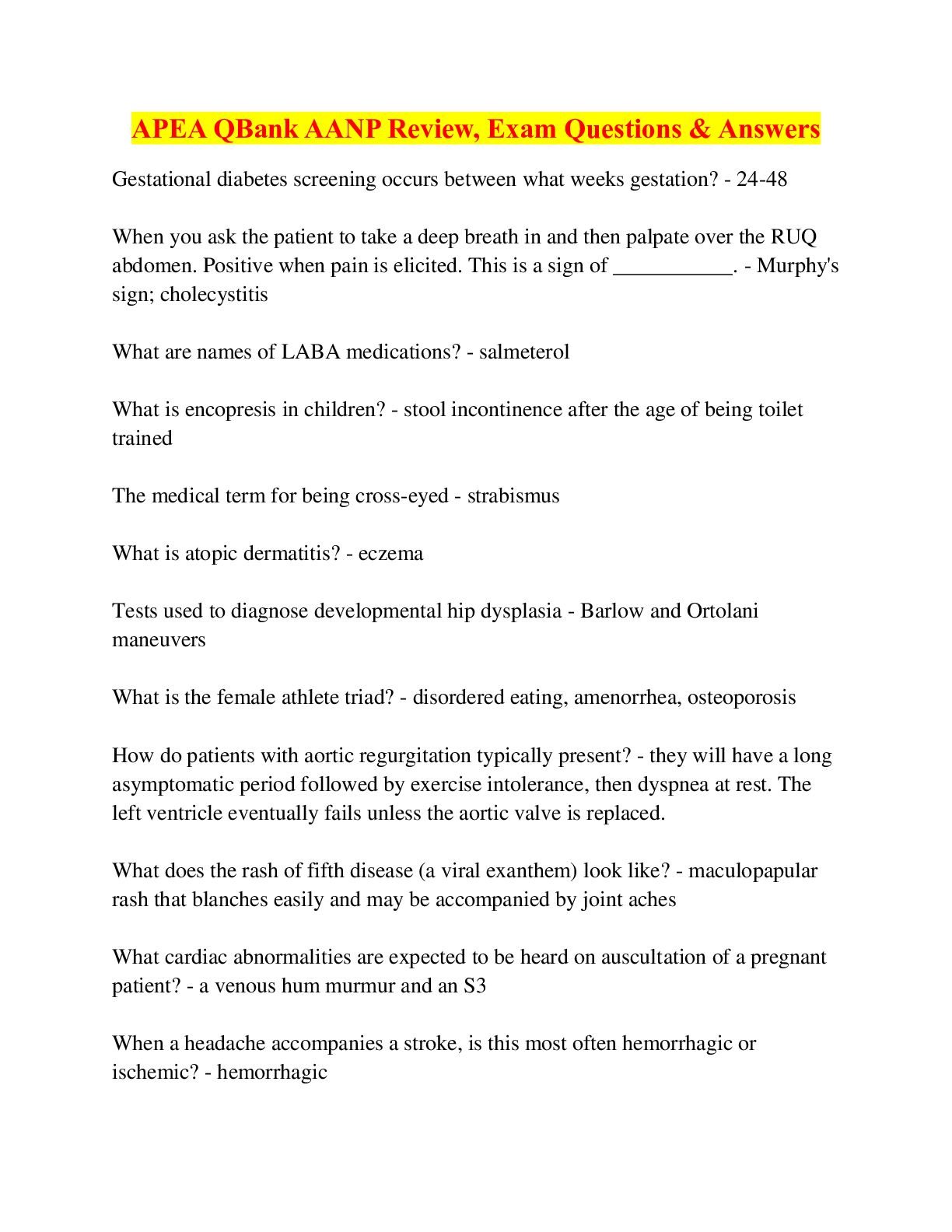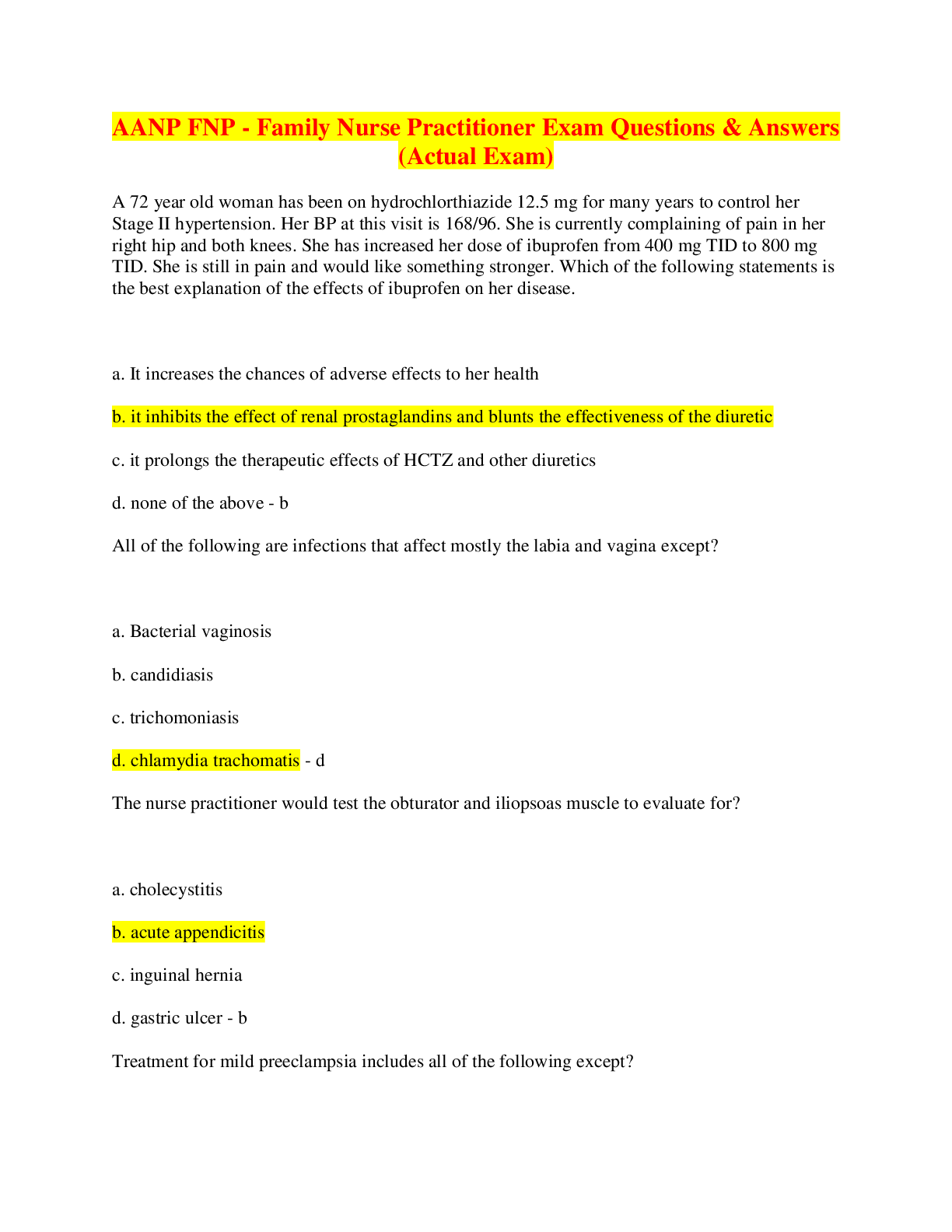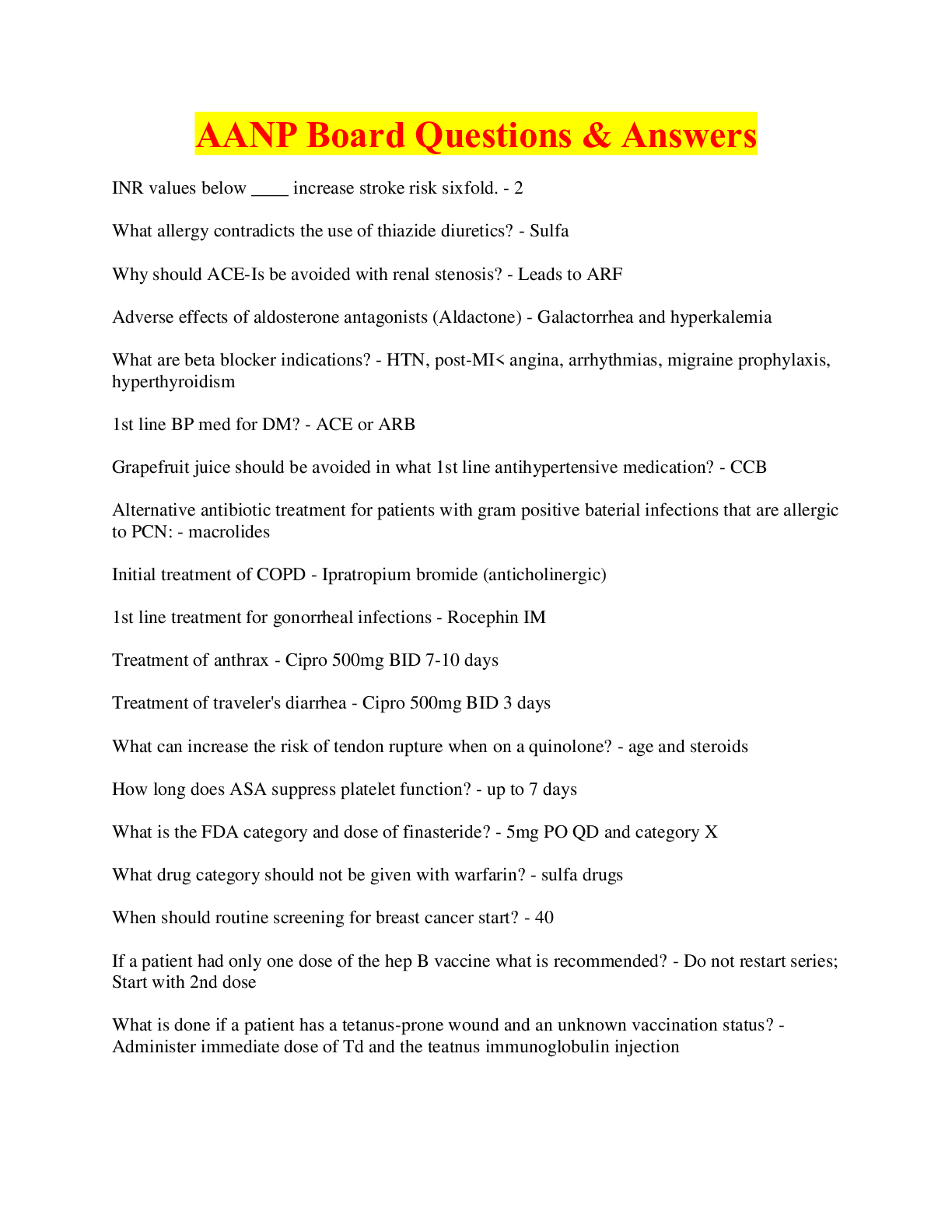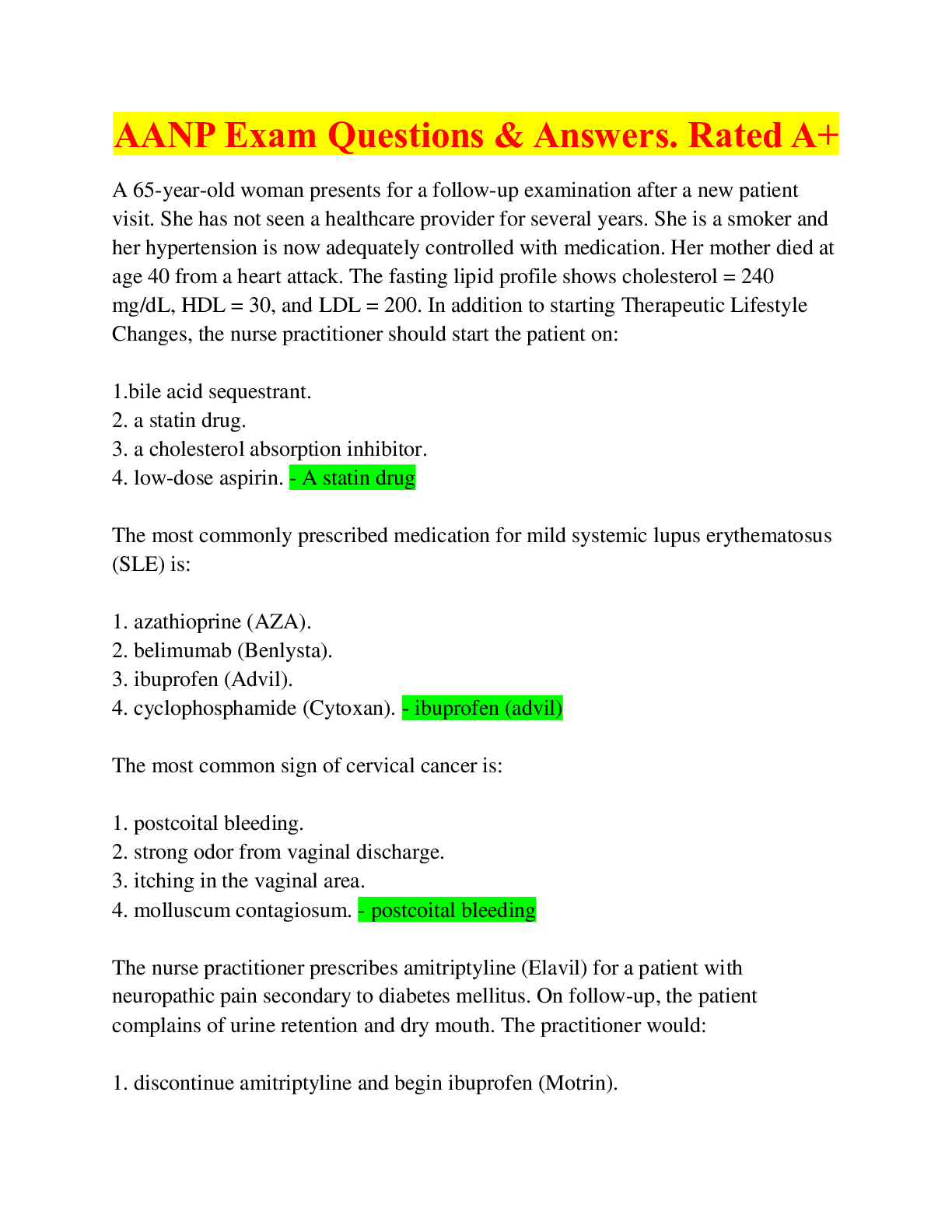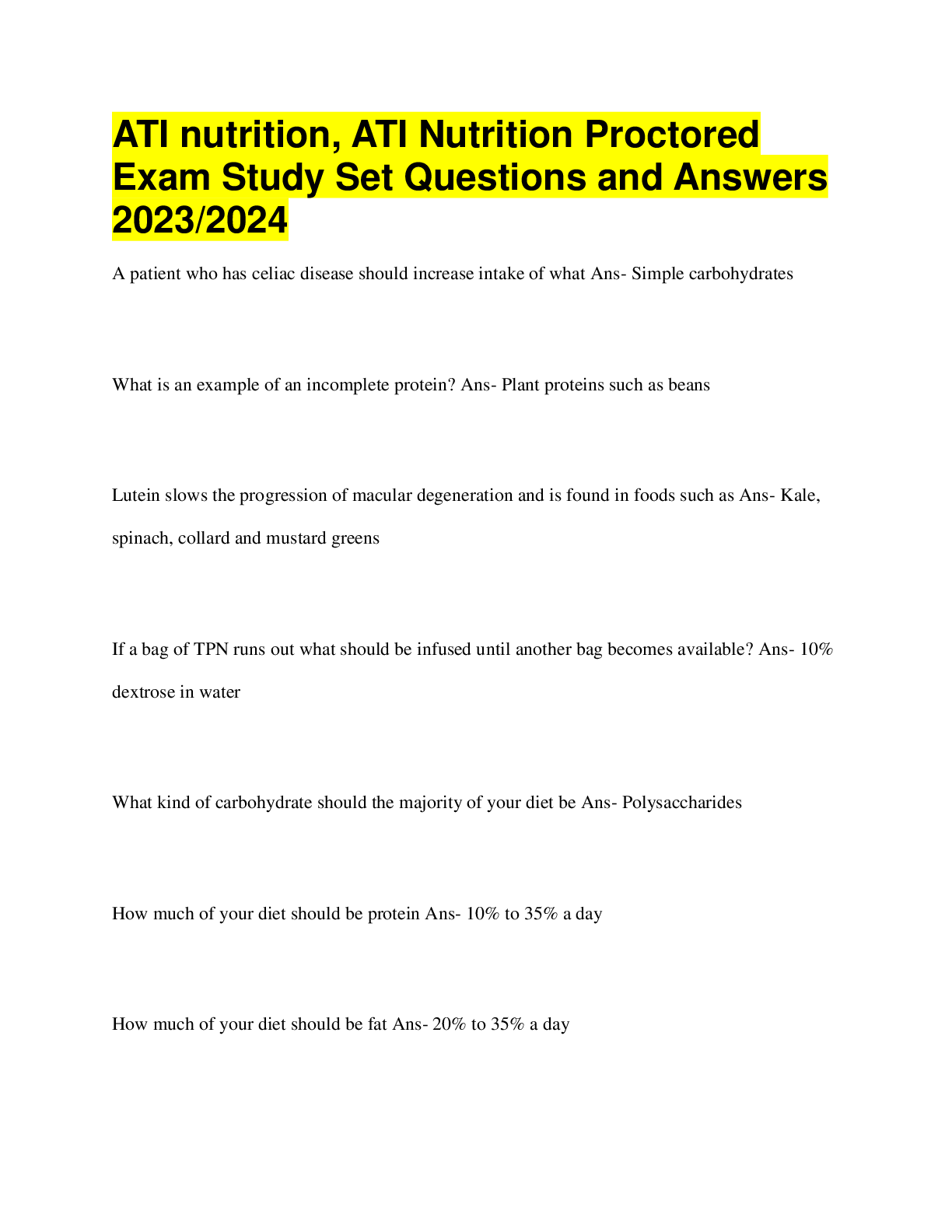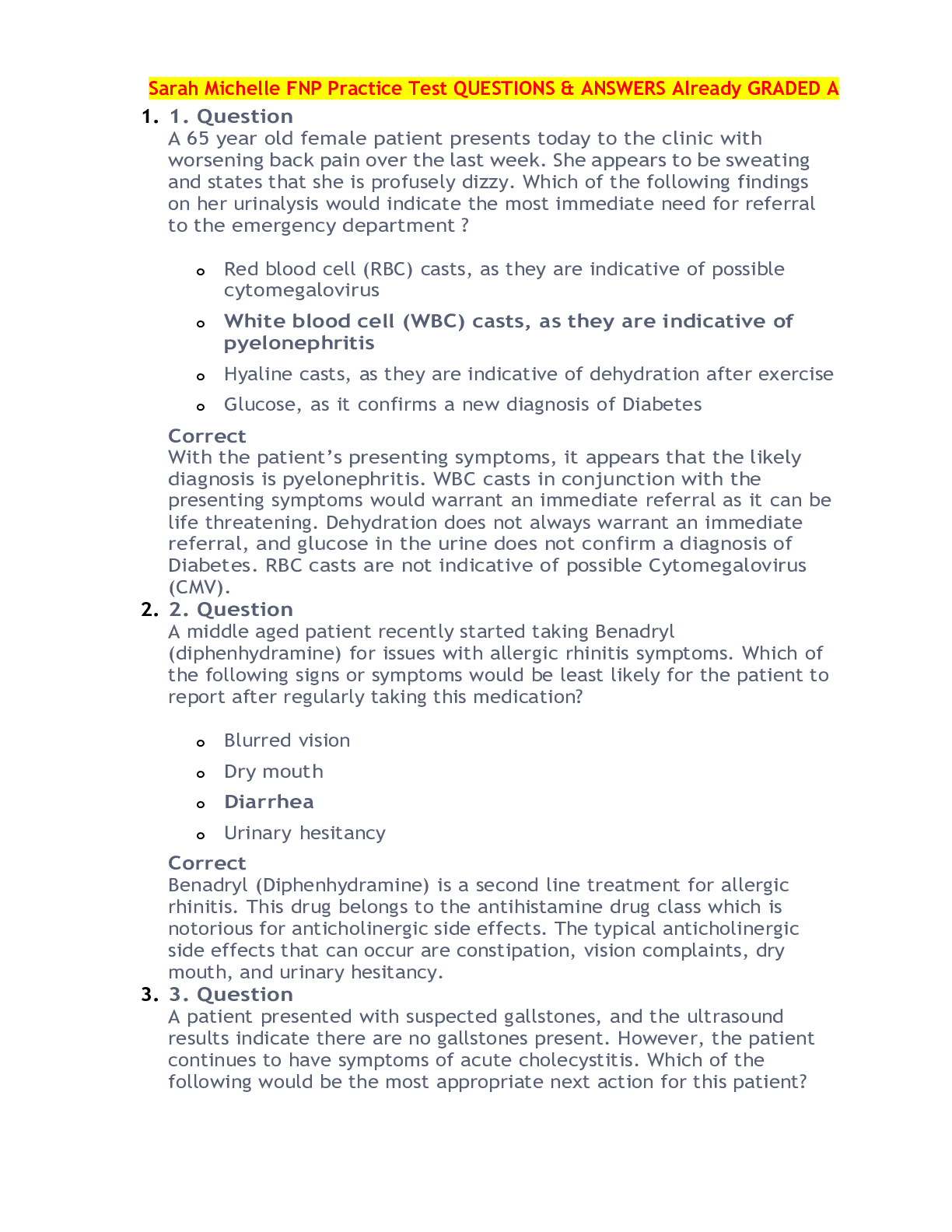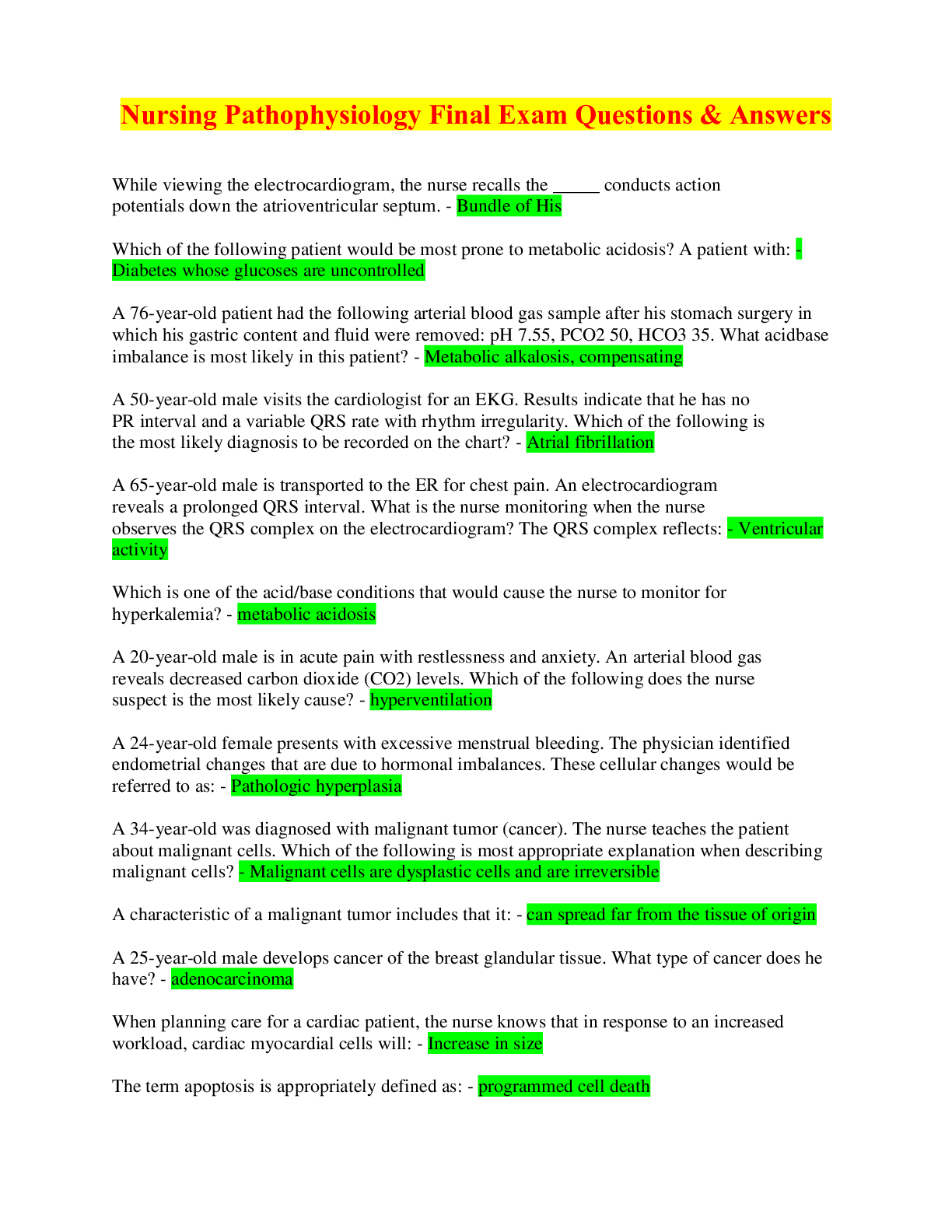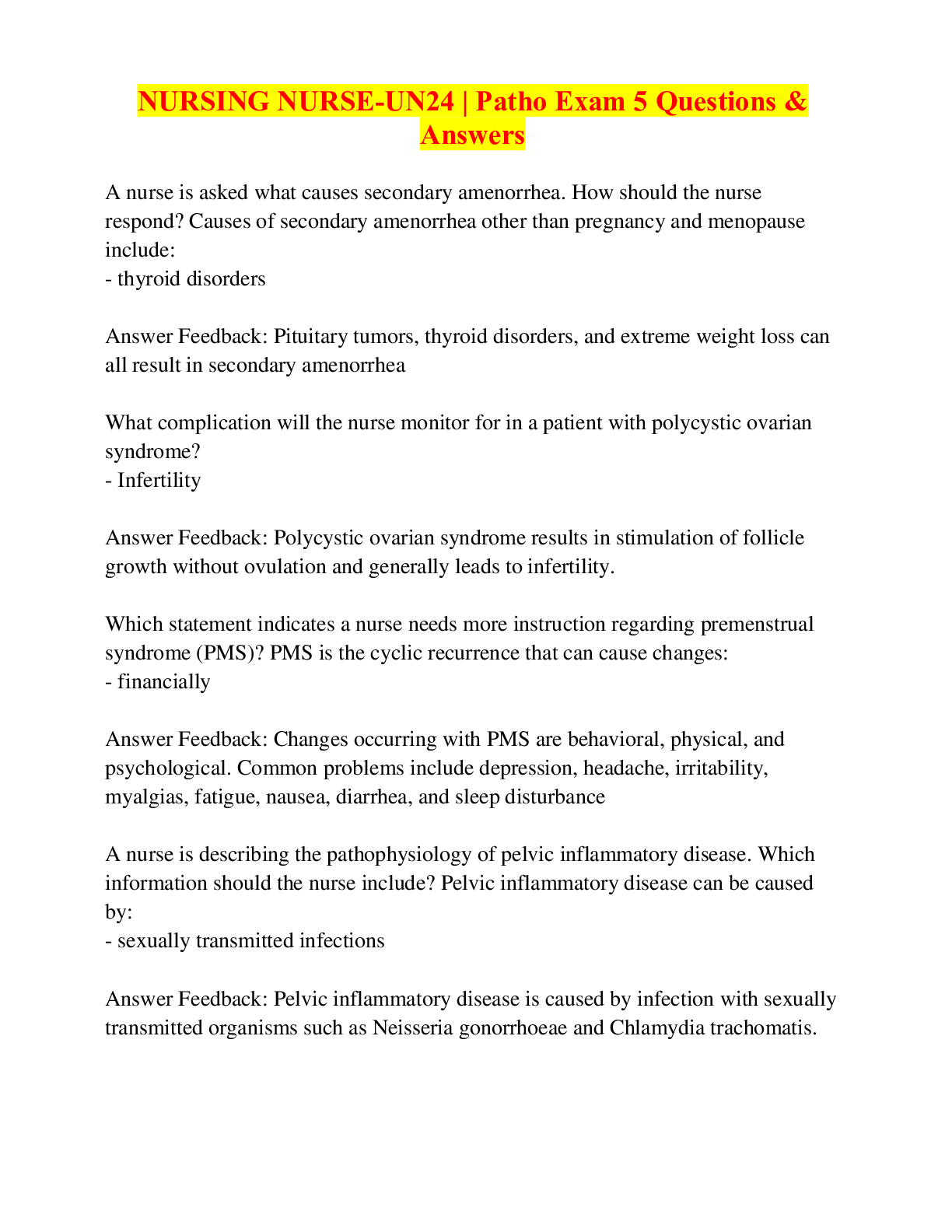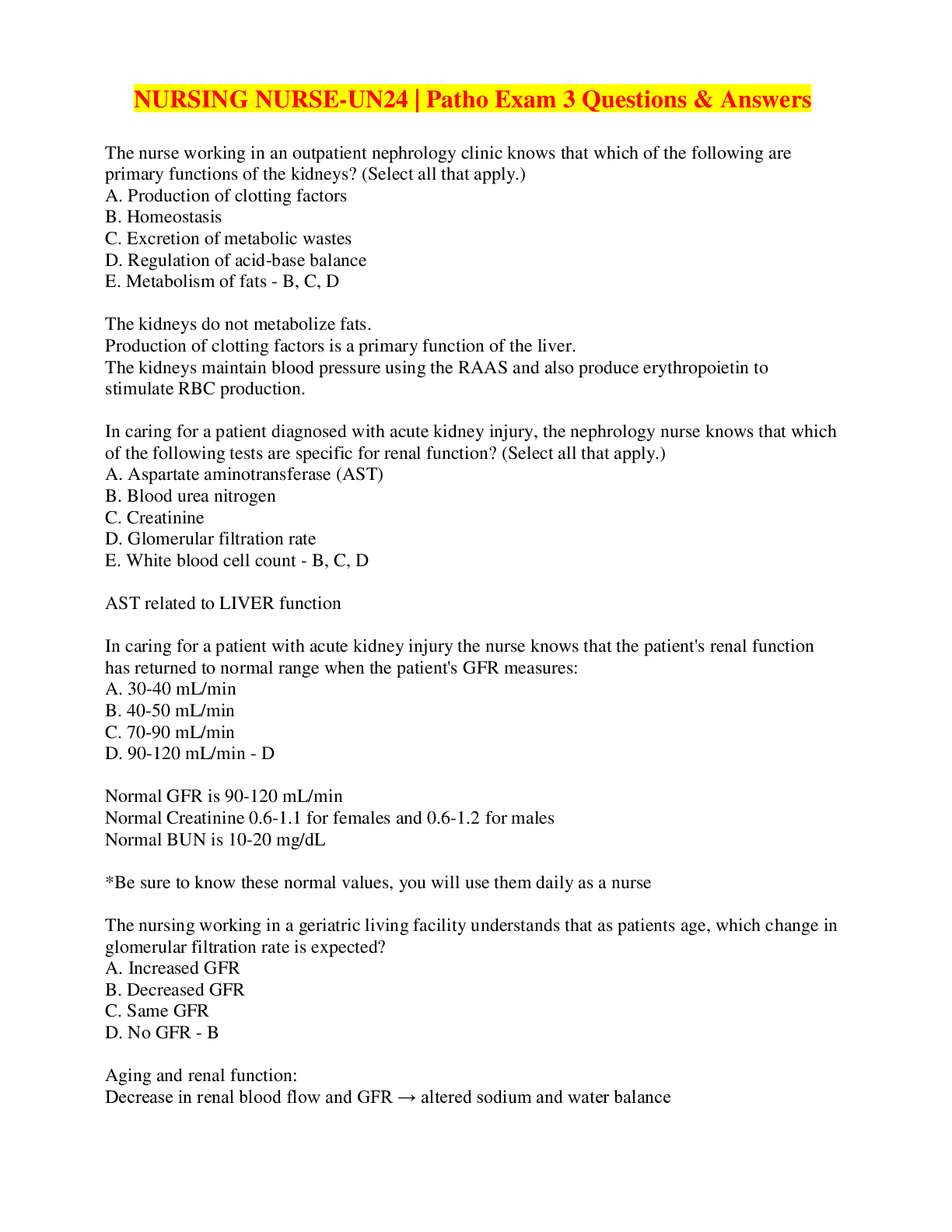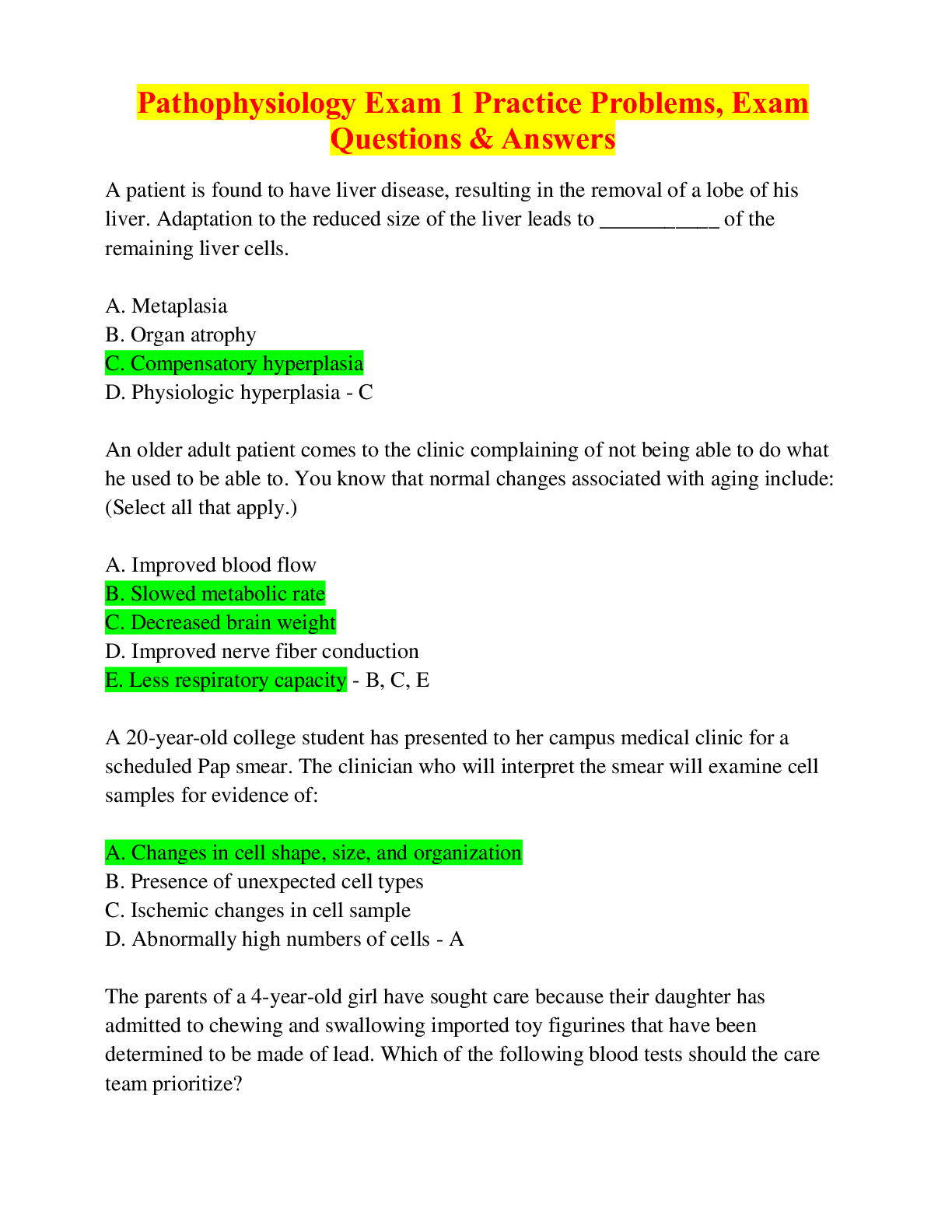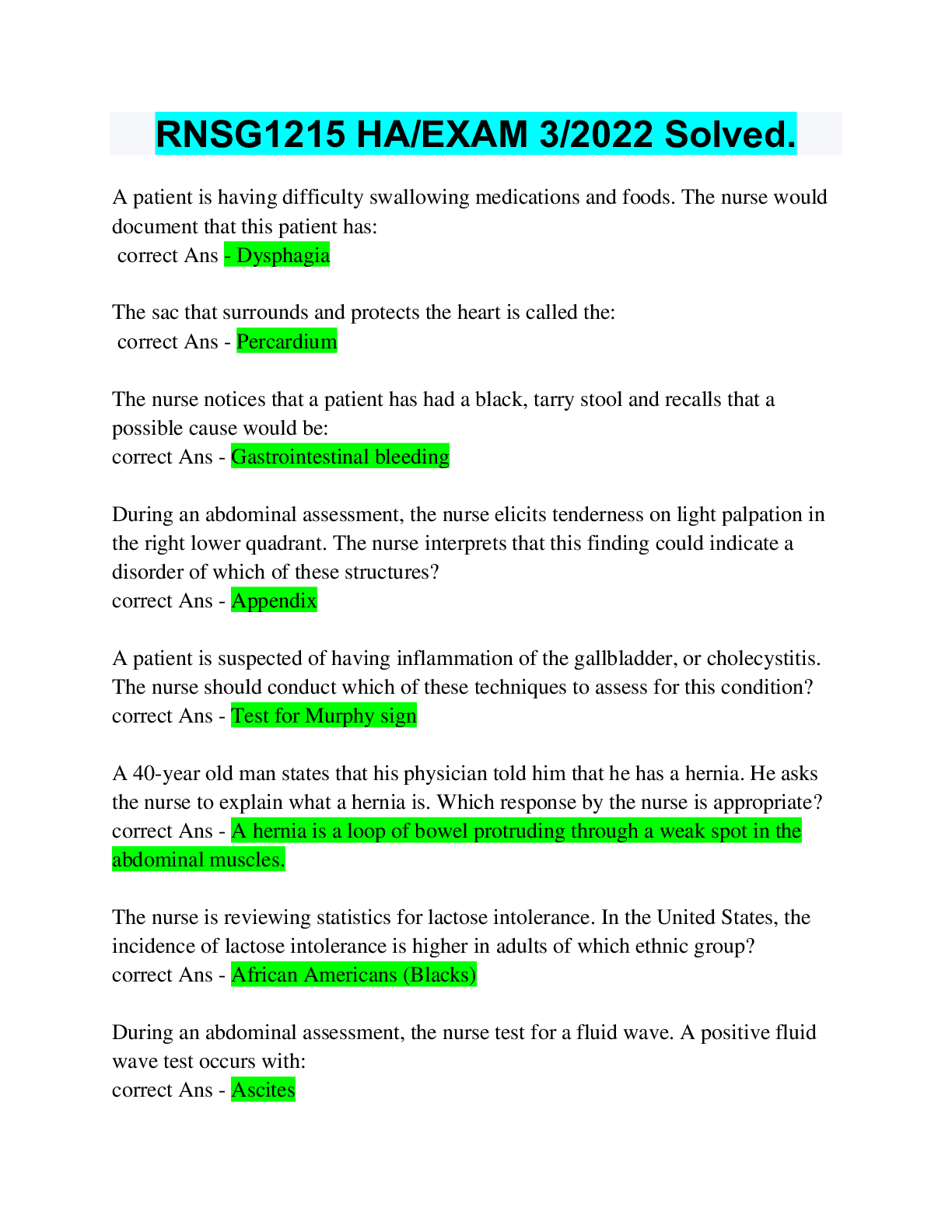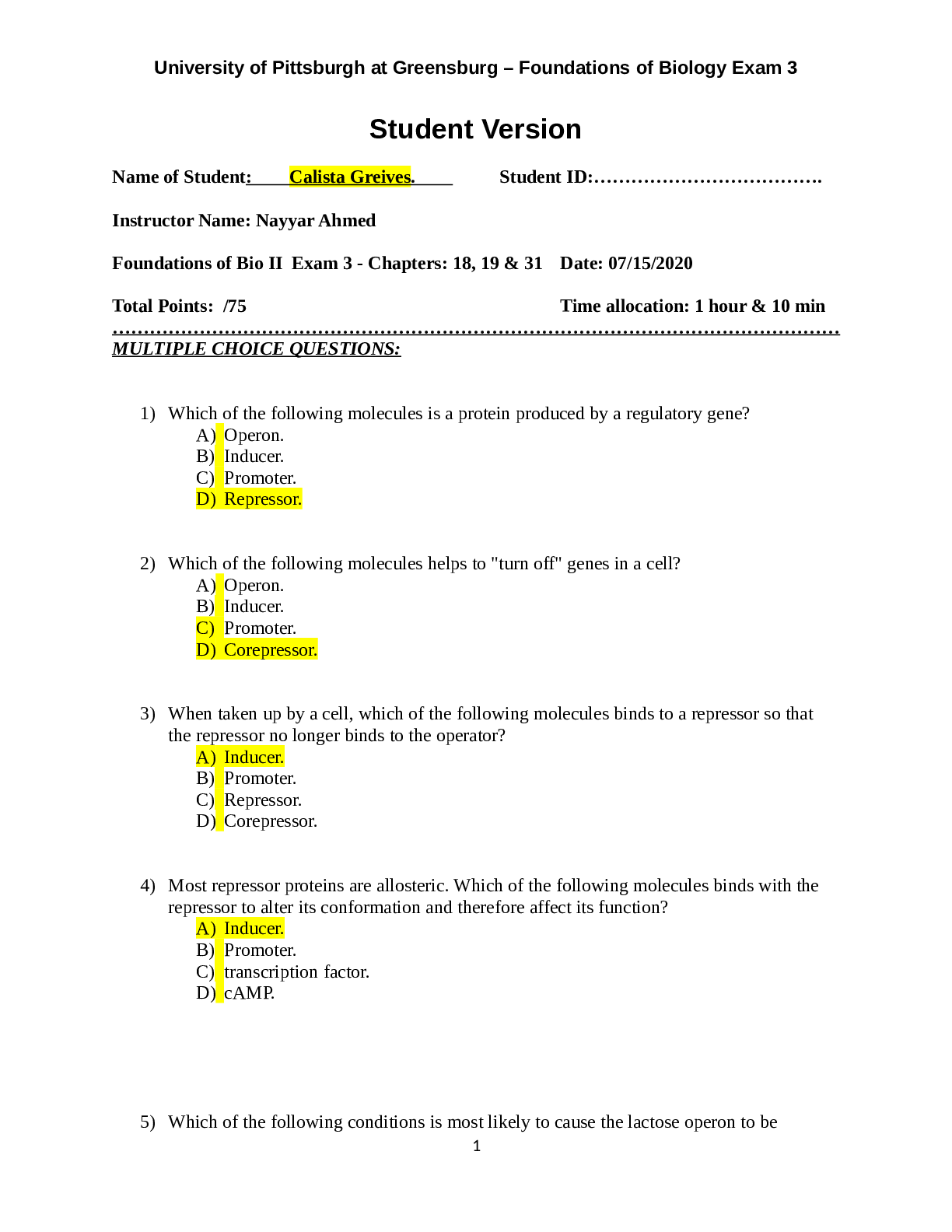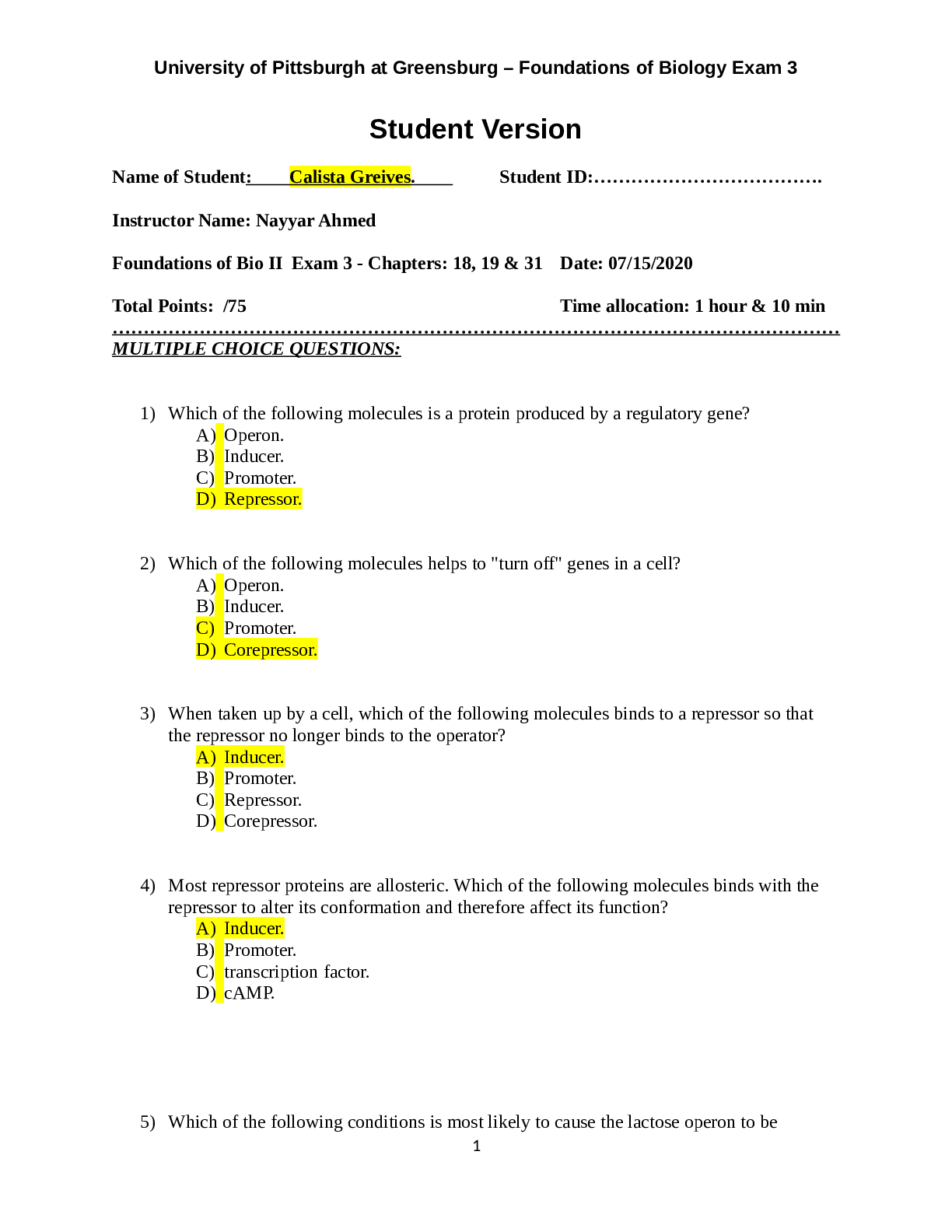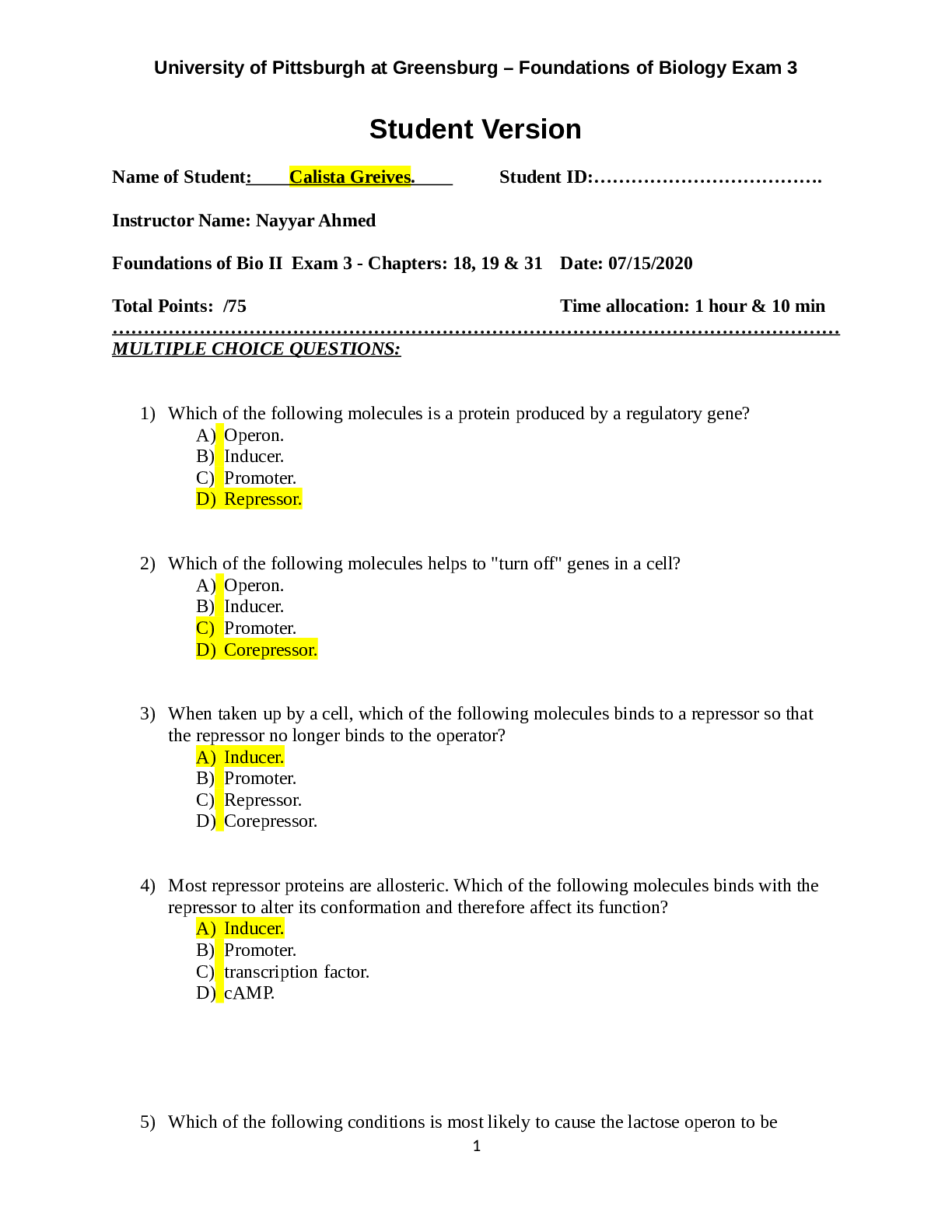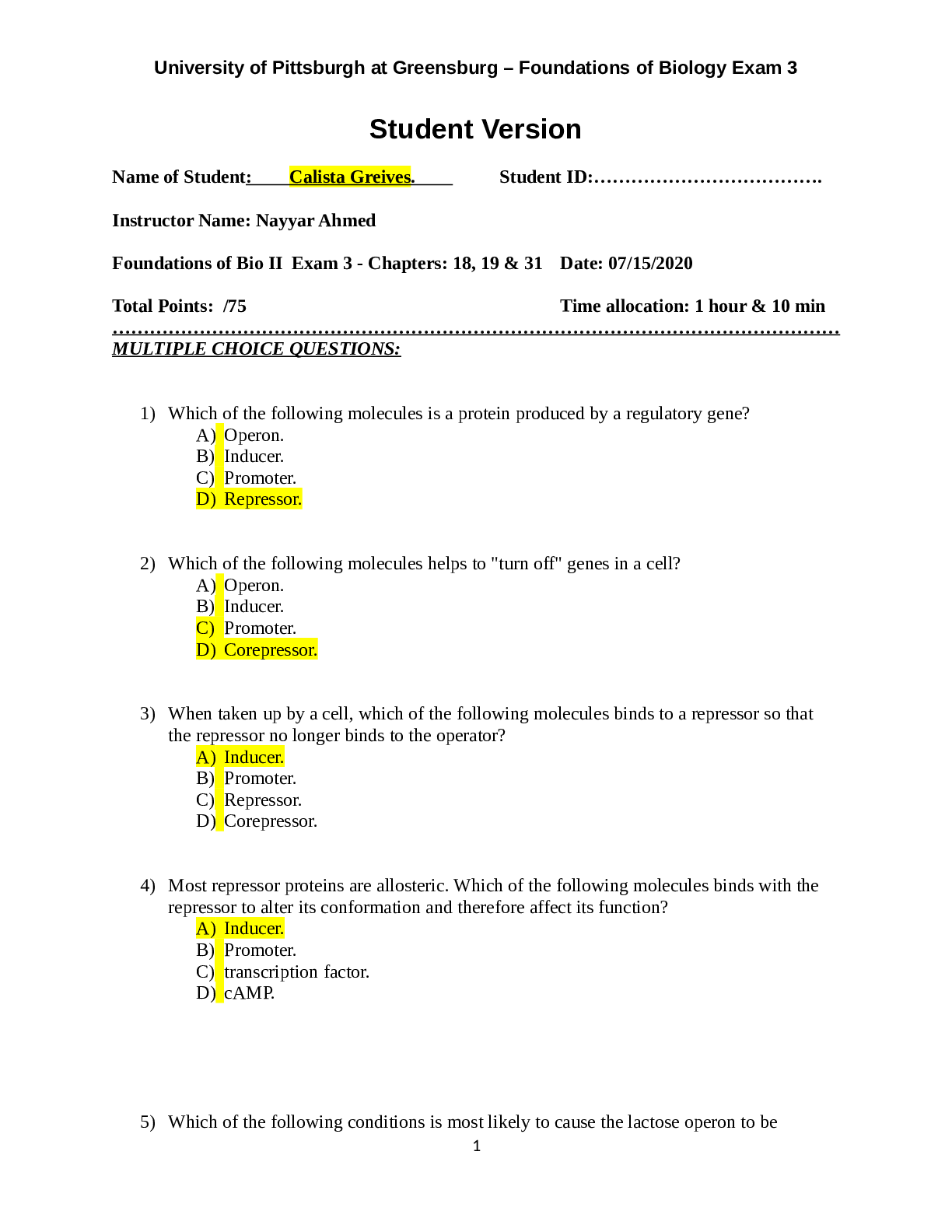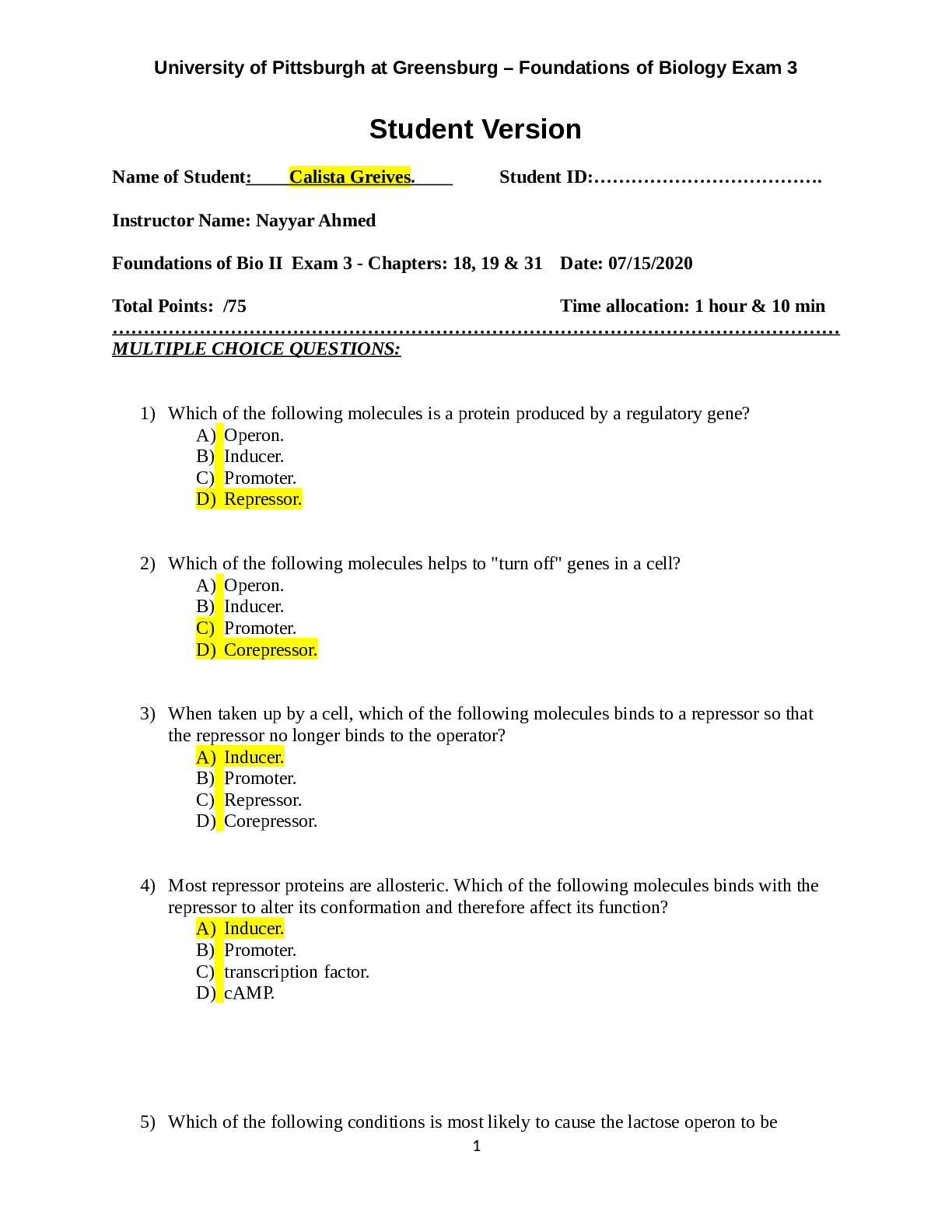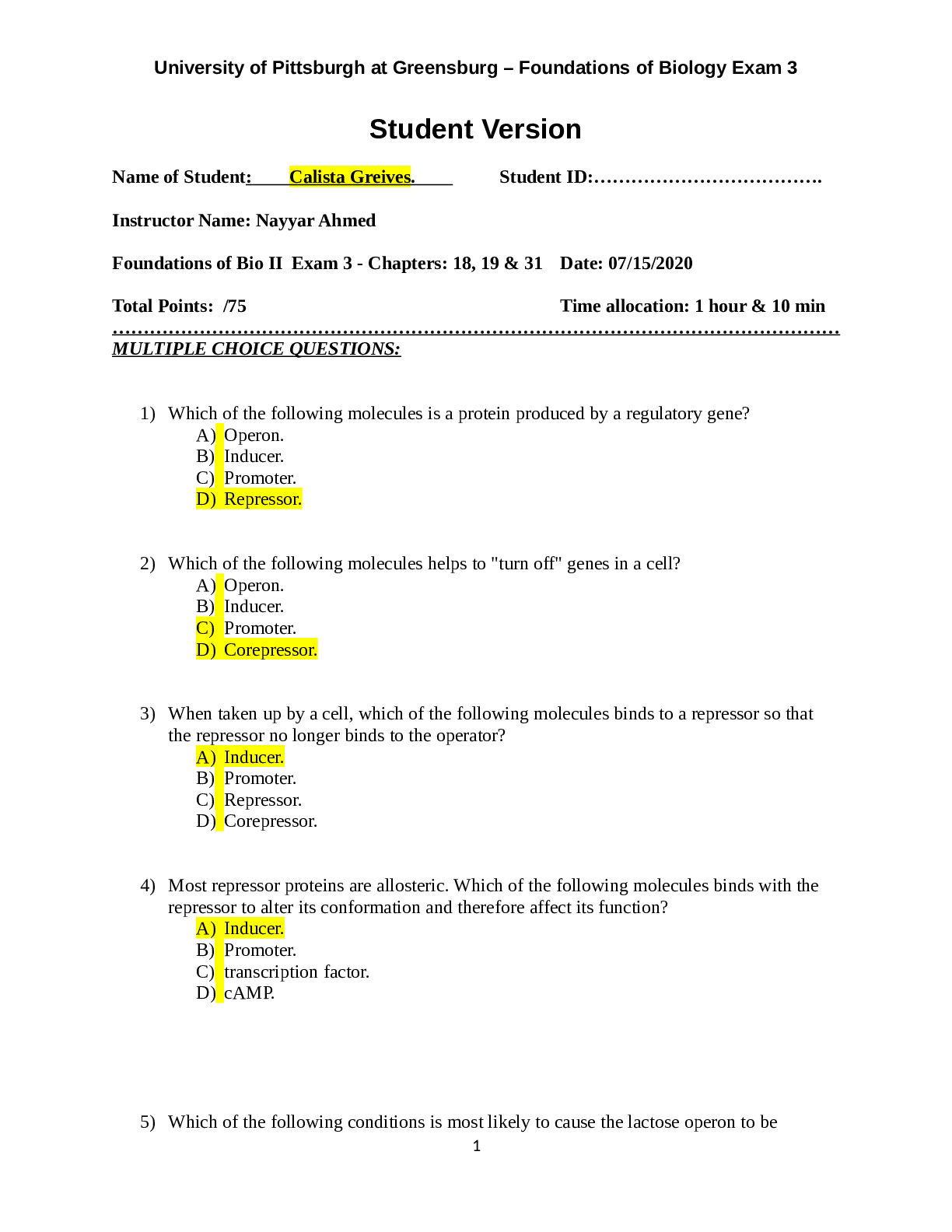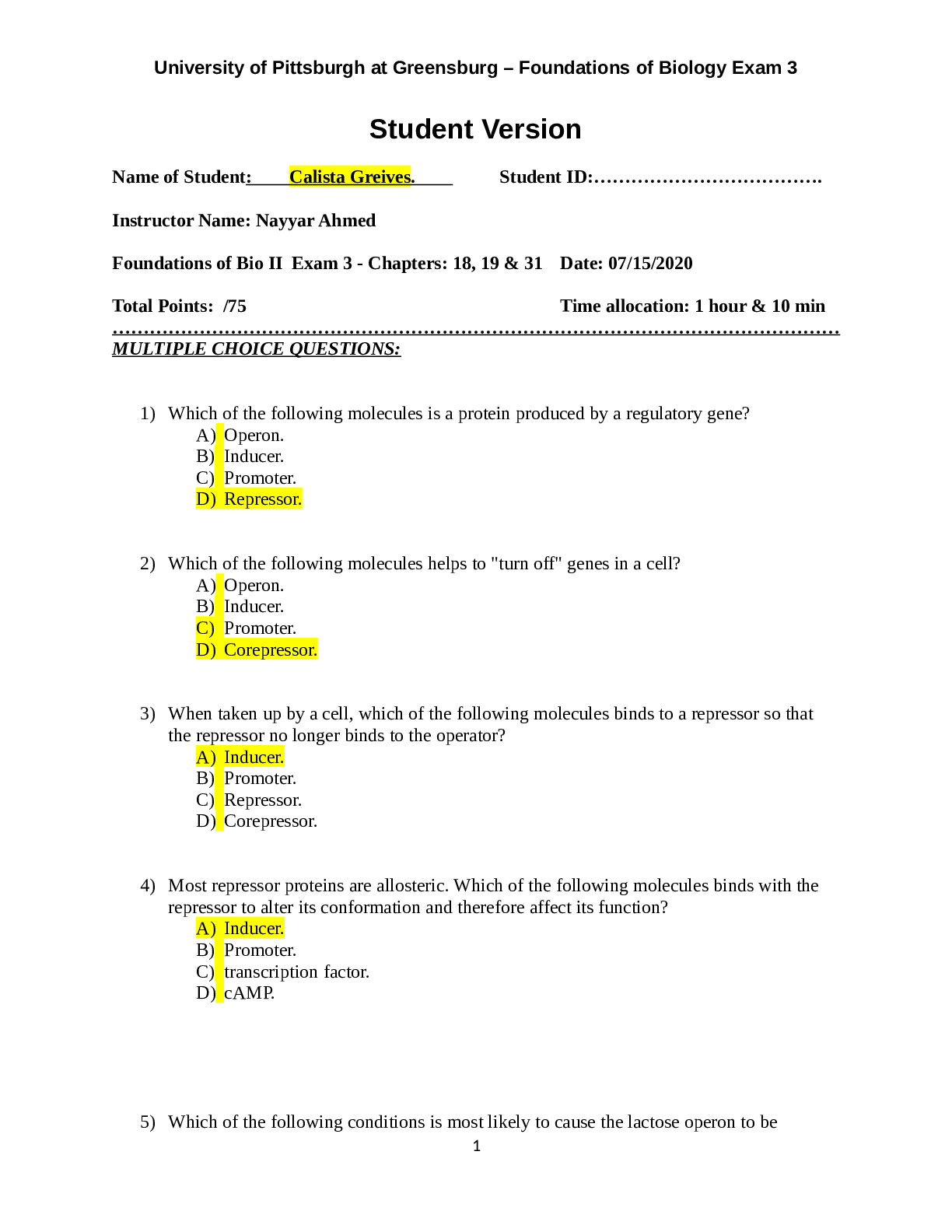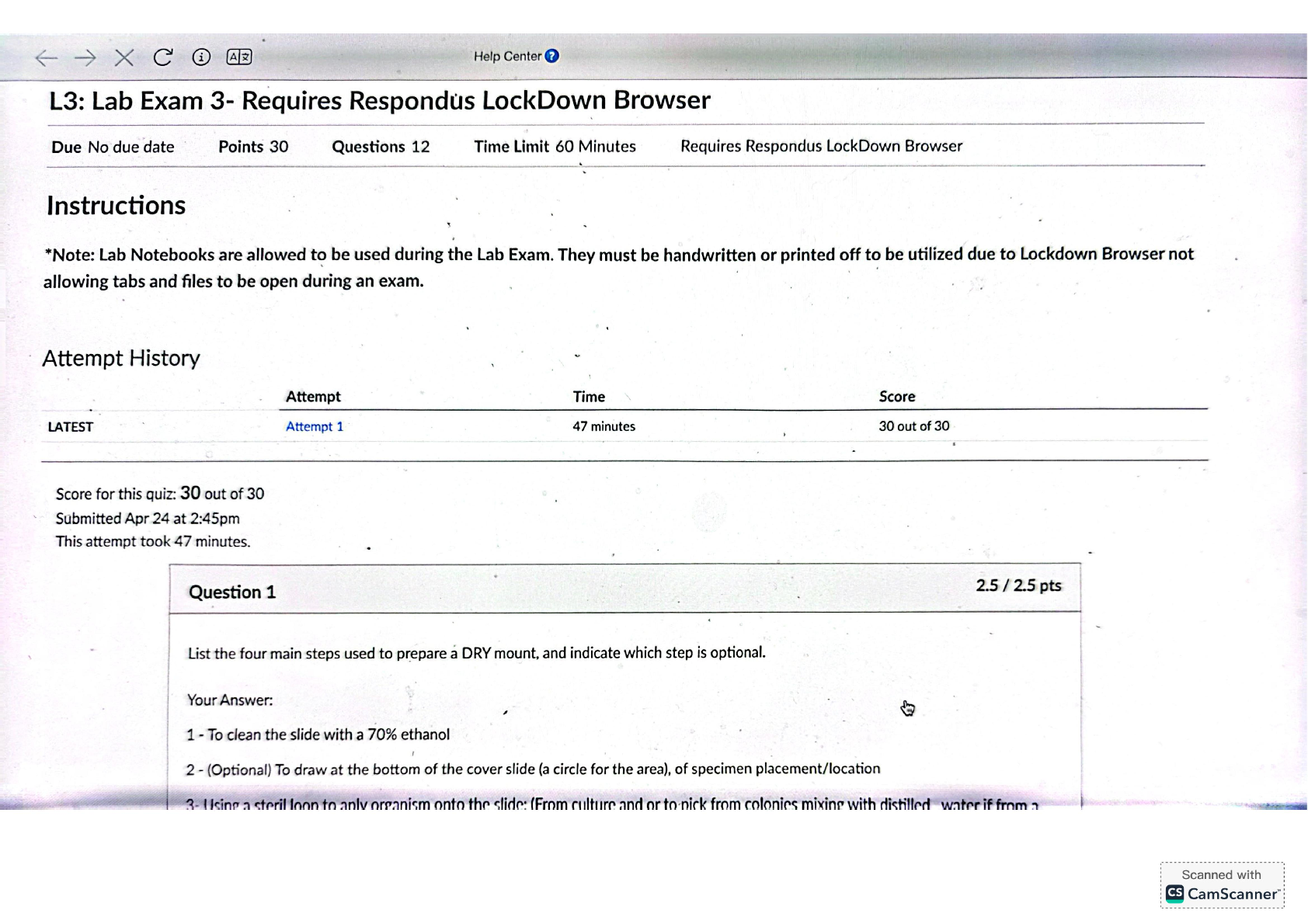RNSG1215 HA/EXAM 3 | RNSG 1215 Health Assessment Exam 3 Answered
Document Content and Description Below
RNSG1215 HA/EXAM 3 | RNSG 1215 Health Assessment Exam 3 Answered-A patient is having difficulty swallowing medications and foods. The nurse would document that this patient has: - Dysphagia The sac... that surrounds and protects the heart is called the: - Percardium The nurse notices that a patient has had a black, tarry stool and recalls that a possible cause would be: - Gastrointestinal bleeding During an abdominal assessment, the nurse elicits tenderness on light palpation in the right lower quadrant. The nurse interprets that this finding could indicate a disorder of which of these structures? - Appendix A patient is suspected of having inflammation of the gallbladder, or cholecystitis. The nurse should conduct which of these techniques to assess for this condition? - Test for Murphy sign A 40-year old man states that his physician told him that he has a hernia. He asks the nurse to explain what a hernia is. Which response by the nurse is appropriate? - A hernia is a loop of bowel protruding through a weak spot in the abdominal muscles. The nurse is reviewing statistics for lactose intolerance. In the United States, the incidence of lactose intolerance is higher in adults of which ethnic group? - African Americans (Blacks) During an abdominal assessment, the nurse test for a fluid wave. A positive fluid wave test occurs with: - Ascites A patient tells the nurse that she is having a hard time bringing her hand to her mouth when she eats or tries to brush her teeth. The nurse knows that for her to move her hand to her mouth. she must perform which movement? - Flexion Flexion - bending a joint Adduction - Movement toward the midline of the body Abduction - Movement away from the midline of the body The nurse is explaining to a patient that there are shock absorbers in his back to cushion the spine and to help it move. The nurse is referring to his: - Intervertebral disks The nurse is checking the range of motion in a patient's knee and knows that the knee is capable of which movement(s)? - Flexion and extension An 85-year-old patient comments during his annual physical that he seems to be getting shorter as he ages. The nurse should explain that decreased height occurs with aging because: - The vertebral column shortens A patient states, "I can hear a crunching or grating sound when I kneel." She also states that it is very difficult to get out of the bed in the morning because of stiffness and pain in my joints." The nurse should assess for signs of what problem? - Crepitation crepitation - the grating sound heard when the ends of a broken bone move together [Show More]
Last updated: 2 years ago
Preview 1 out of 19 pages
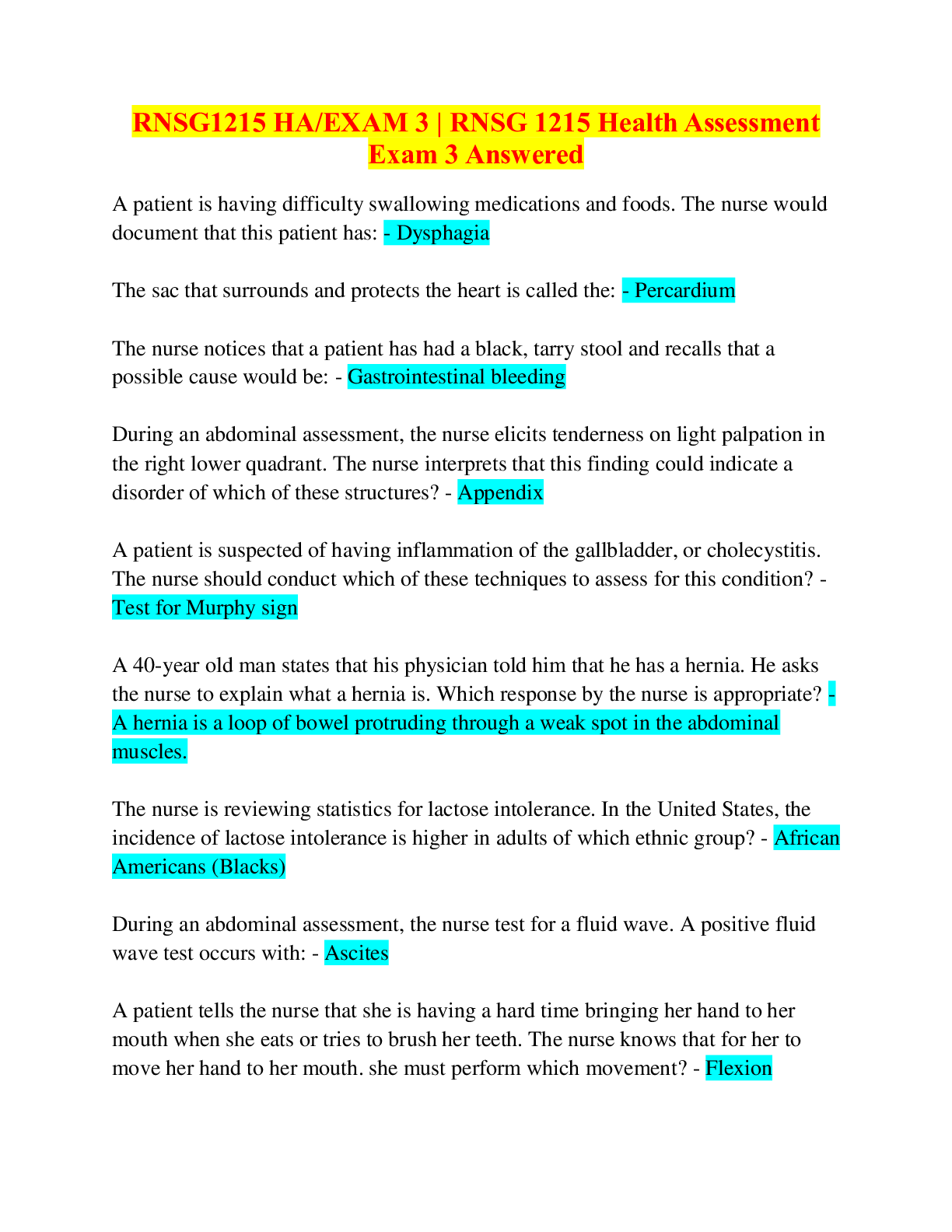
Buy this document to get the full access instantly
Instant Download Access after purchase
Buy NowInstant download
We Accept:

Reviews( 0 )
$14.50
Can't find what you want? Try our AI powered Search
Document information
Connected school, study & course
About the document
Uploaded On
Mar 10, 2023
Number of pages
19
Written in
Additional information
This document has been written for:
Uploaded
Mar 10, 2023
Downloads
0
Views
63

